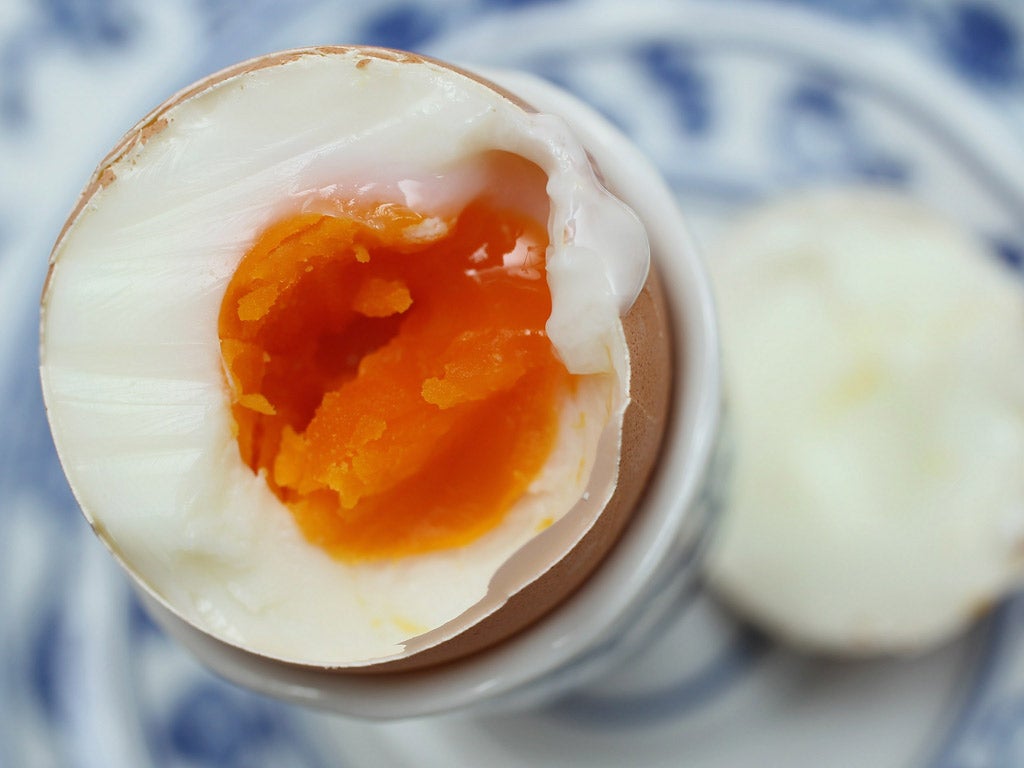Have we cracked our battery habit?
They are more expensive, but for the first time this year we will buy more free-range eggs than those from intensive farms. Martin Hickman reports

Twenty years ago free-range eggs were rarely bought but for the first time this year they will outsell those from caged birds, according to industry estimates.
Of the 9 billion eggs laid in the UK in 2012, 49 per cent will come from free-range hens allowed to roam outdoors, compared with 48 per cent from hens cooped up in cages. A further 3 per cent come from "barn" hens that wander around indoor sheds, according to the British Egg Industry Council.
Animal welfare groups say there has been a quiet revolution in shopping habits since 1995, when 86 per cent of British eggs came from battery cages.
Although barren battery cages were banned by the European Union on 1 January, their replacement, "enriched" cages, contain perches and litter for pecking and scratching, but give each hen only 750cm squared – little more than a sheet of A4 paper.
Some farmers using battery cages are thought to have left the business in recent months rather than invest in "enriched" cages, further tilting the balance in favour of free-range.
The RSPCA believes the transformation in our egg-buying habits has been spurred by the introduction eight years ago of compulsory labelling which forced producers to state the method of production.
Several retailers such as Waitrose, the Co-op and Marks & Spencers will not stock any eggs from caged birds, but other supermarkets such as Tesco and Morrisons, will sell eggs from enriched cages.
The RSPCA says the rise of free-range sales shows shoppers are prepared to pay more to ensure good animal welfare. On average, free-range costs 4p more per egg, with Tesco selling a free-range box of six for £1.68 and six from caged birds for £1.46.
The Department of the Environment, Food and Rural Affairs confirmed the long-term trend away from cages last week when it disclosed egg production figures for 2011.
For the first time last year, most eggs, 51 per cent, came from the three non-cage systems: organic, free-range and barn (where there is no access to the outdoors).
Mark Williams, chief executive of the British Egg Industry Council, which represents producers, said: "There's a greater demand for non-caged eggs and egg producers have responded to that."
9bn eggs will be laid in the UK this year – and more will come from free-range sources than from battery farms
Subscribe to Independent Premium to bookmark this article
Want to bookmark your favourite articles and stories to read or reference later? Start your Independent Premium subscription today.

Join our commenting forum
Join thought-provoking conversations, follow other Independent readers and see their replies